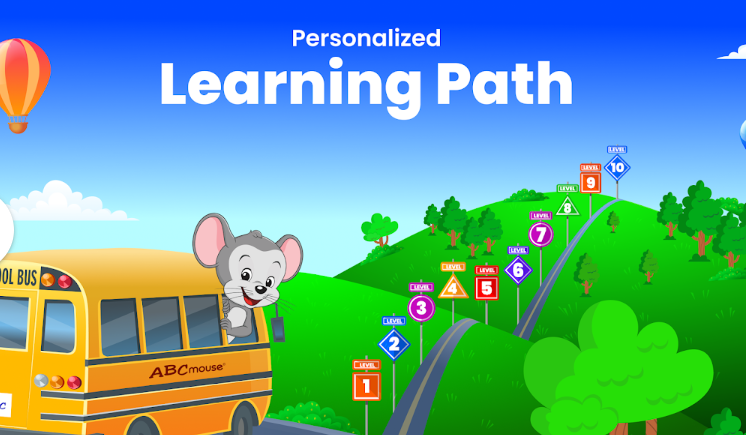As adults, we often find ourselves in search of new ways to enhance our knowledge, skills, and cognitive abilities. While we may not always have the time or inclination to sit down with textbooks or take formal courses, educational games offer a fun and effective alternative. These games cater to various interests and learning styles, helping adults engage their minds while providing a refreshing break from the routine. In this article, we explore a diverse selection of educational games for adults, their benefits, and how they can fit into different lifestyles.

The Importance of Educational Games for Adults
In today’s fast-paced world, continuous learning has become more important than ever. Educational games for adults offer a way to keep the brain active, stimulate creativity, and improve memory. Unlike traditional educational methods, these games provide an interactive environment that makes learning enjoyable and accessible. From strategic board games to mobile apps, educational games can sharpen a range of skills, including problem-solving, critical thinking, and teamwork.
Types of Educational Games for Adults
There are various types of educational games available to suit different learning needs and preferences. These games can be classified into several categories based on the skills they aim to develop and the medium through which they are played. Below are some of the most popular categories:
1. Board Games
Board games are an excellent way to engage in face-to-face learning while also enjoying social interaction. Many board games for adults are designed to test strategic thinking, memory, and problem-solving abilities. Here are a few popular examples:
Codenames: This word association game helps adults expand their vocabulary and improve cognitive flexibility. Players must give clues to help their team guess the correct words, fostering teamwork and enhancing communication skills.
Scrabble: A classic word game, Scrabble challenges players to form words from random letter tiles. It’s ideal for improving spelling, vocabulary, and mental agility.
Chess: Often considered the ultimate strategic game, chess has been known to improve problem-solving skills, concentration, and logical thinking. Playing chess regularly can sharpen cognitive abilities and increase attention span.
2. Card Games
Card games have been a popular form of entertainment for centuries, but many also have educational value. These games help adults develop strategic thinking, memory retention, and decision-making skills. Popular educational card games include:
Exploding Kittens: A simple but fun card game that encourages players to think ahead and strategize. While lighthearted, it’s a great exercise for planning and managing risks.
The Game of 31: This card game challenges players to use mental math skills to score points and win the game. It’s a fun way to keep arithmetic skills sharp while playing with others.
Hanabi: In this cooperative game, players work together to create a beautiful fireworks display by strategically placing cards in the correct order. It requires memory, teamwork, and strategic planning.
3. Video Games
In recent years, video games have evolved beyond entertainment to become powerful tools for learning. Many video games incorporate elements of history, science, mathematics, and critical thinking, making them ideal for adult learners. Here are some examples of educational video games:
Civilization VI: This strategy game allows players to build and manage a civilization from the ground up. Players must make decisions regarding economy, military, diplomacy, and technology, enhancing strategic thinking and planning skills.
Portal 2: A puzzle-based game that challenges players to think critically and solve complex problems using logic. It fosters creativity, spatial awareness, and problem-solving skills.
Duolingo: While technically a mobile app rather than a traditional video game, Duolingo gamifies the process of learning a new language. It uses levels, points, and rewards to make language learning fun and interactive.
4. Mobile Apps
Mobile applications have become increasingly popular as a way for adults to engage in educational gaming. These apps often include a variety of topics, from language learning to mathematics and mental exercises. Some well-known educational mobile apps for adults include:
Lumosity: This app offers a variety of mini-games designed to improve memory, attention, flexibility, and problem-solving skills. It’s ideal for adults who want to keep their brains sharp.
Elevate: Similar to Lumosity, Elevate offers personalized brain training exercises that target specific cognitive skills. The app’s interactive nature and tailored exercises make learning feel like play.
Peak: Peak’s wide range of cognitive games covers topics such as problem-solving, attention, language, and mental agility. The app provides performance tracking, helping users monitor their progress over time.
Benefits of Playing Educational Games
Engaging in educational games can have numerous advantages for adults, both mentally and emotionally. Here are some key benefits:
1. Improved Cognitive Function
One of the primary benefits of educational games is that they can help enhance cognitive abilities. Whether it’s improving memory, attention, or problem-solving skills, games stimulate various areas of the brain. Studies have shown that regularly playing brain-training gamescan help delay cognitive decline as we age, providing long-term mental benefits.
2. Stress Relief and Relaxation
Many adults experience high levels of stress due to work, personal life, and other pressures. Educational games provide a fun and relaxing way to unwind while still engaging the brain. The immersive nature of many games can act as a form of escapism, allowing players to temporarily detach from their stressors.
3. Improved Social Interaction
Educational games often involve collaboration and communication, fostering social interaction. Whether playing board games or participating in multiplayer online games, adults have the opportunity to connect with others. This social aspect can be especially beneficial for individuals who may experience social isolation or who want to strengthen relationships with family and friends.
4. Skill Development
Educational games can help adults develop a wide range of skills. From logical reasoning and strategic thinking to teamwork and multitasking, these games challenge players to think critically and make quick decisions. Whether you’re learning a new language or trying to improve your math skills, games offer a non-traditional approach to skill development.
5. Enhanced Creativity
Games that involve solving puzzles or creating strategies require players to think outside the box. This can help adults become more creative in their everyday lives, improving their ability to generate innovative solutions to problems at work or home.
6. Increased Focus and Concentration
Many educational games require players to concentrate on the task at hand, whether it’s remembering a sequence of events, solving a puzzle, or navigating a strategy. This heightened focus helps improve concentration skills, which can transfer to other areas of life.
How to Incorporate Educational Games into Daily Life
Finding time to play educational games can be challenging, especially with busy schedules. However, there are several ways to incorporate these games into your daily routine:
Set aside time for regular play: Dedicate a few minutes each day to play a quick brain-training game or engage in a longer session with a more strategic game. Even 10-15 minutes a day can have significant cognitive benefits.
Play with others: Many educational games are designed to be social, allowing you to interact with friends, family, or colleagues. Playing with others can make the experience more enjoyable and help strengthen relationships.
Use mobile apps during downtime: Take advantage of idle moments, such as during your commute or while waiting for an appointment, to play educational games on your mobile device. Apps like Lumosity and Duolingo can be accessed anytime and anywhere.
Join online communities: Many online games and platforms offer the opportunity to connect with others who share your interests. Joining an online community can make the gaming experience more enjoyable and give you a sense of camaraderie.

Frequently Asked Questions (FAQs)
1. What are some good educational games for adults to play alone?
Some great solo educational games include Sudoku, Crossword Puzzles, Chess, and Brain-training apps like Lumosity and Peak. These games can be played individually and offer numerous cognitive benefits.
2. Can educational games really improve cognitive function?
Yes, educational games challenge the brain and help improve cognitive functions such as memory, problem-solving, and focus. Regular engagement in these games has been shown to boost mental agility and delay cognitive decline.
3. Are there any educational games for improving language skills?
Yes, apps like Duolingo, Babbel, and Memrise are great for improving language skills. These apps make language learning fun by incorporating game-like elements such as levels, points, and rewards.
4. Are board games still popular for adult education?
Yes, board games like Scrabble, Codenames, and Ticket to Ride are still popular for adult education. These games encourage strategic thinking, vocabulary expansion, and problem-solving.
5. How can I fit educational games into my busy schedule?
You can fit educational games into your schedule by dedicating a few minutes each day to mobile apps or playing quick card or board games with friends and family. Even brief gaming sessions can provide significant cognitive benefits.
Final Break
Educational games for adults provide a unique opportunity to learn, relax, and engage the mind in a fun and interactive way. Whether you prefer board games, card games, video games, or mobile apps, there’s a wide range of options to suit your learning style and preferences. Incorporating educational games into your routine not only enhances cognitive function but also promotes social interaction, stress relief, and creativity. So, why not make learning fun again? Choose your favourite game and start reaping the benefits today.